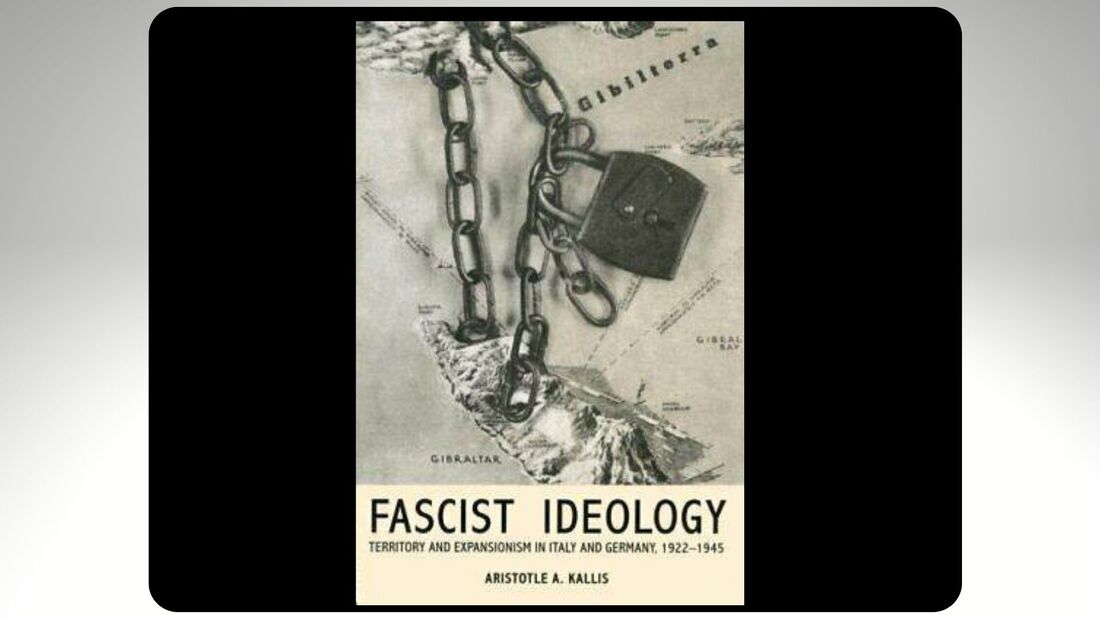|
7/25/2022 Book Review: Fascist Ideology: Territory and Expansionism in Italy and Germany ,1922-1945. Reviewed by: Thomas RigginsRead NowThis book by Aristotle A. Kallls is an interesting book on the state of bourgeois research and theories about fascism. It is doubtful if Marxists, especially those familiar with the works of Georgi Dimitrov, will learn much from it. Although in recent years some Marxists {MINOs) and even some Marxist parties have begun to use the term “fascism” indiscriminately and in ways foreign to Dimitrov. Kallls informs us that there is still no “lasting consensus about what ‘fascism’ reality represents.” His purpose is to analyze fascist expansionism as ideology and as action That is, his book seeks to tell us how “domestic and international factors” affected the ability of German and Italian fascism to carry out their ideological goals and expansionist policies. But lacking “a consensus about what ‘fascism’ really means” Kallis can only discuss his subject in the abstract theoretical terms of bourgeois scholarship. He appears unaware of one of the major discussions on the nature of fascism — namely, Georgi Dimitrov’s report to the Seventh World Congress of the Communist International given on August 2, 1935. For Marxists, the class character of fascism — “what it really represents” — is not an issue . Dimitrov’s definition of fascism “as the open terrorist dictatorship of the most reactionary, most chauvinistic and most imperialist elements of finance capital,” applies to “classical” fascism (Italy and Germany) but also to such recent fascist regimes as Suharto’s Indonesia and Pinochet’s Chile, as well as Franco’s Spain. Lacking a Marxist understanding of the nature of fascism and its role in maintaining a crisis ridden capitalism, Kallis is often reduced to trying to explain events by reference to the “personalities” of Hitler and Mussolini rather than seeing them as class responses to the growth of revolutionary class consciousness within the working class. In the US this is manifested in blaming Trump as a person rather than a cog in a system. As Dimitrov points out, fascism comes to power when the bourgeoisie is “no longer in a position to maintain its dictatorship over the masses by the old methods of bourgeois democracy and parliamentarism." Kallls, however, never mentions the central role of finance capitalism in the workings of fascism. He writes that “personal charisma remained the most powerful unifying force” of the Italian and German regimes. Some on the left should keep this in mind before throwing around the term “fascism” with respect to the Republicans (Trump was a close call) and other right wing, reactionary, racist authoritarian movements. Finance capital has chosen Biden as its leader and is quite content to run its terroristic foreign policies offshore through imperialist channels using the Democratic Party (and the Republican as need be) and those who support it and the bourgeois democracy the capitalist ruling class uses to maintain its control over the working class. Another aspect of Kallis theory is that fascism is just a special case of the generic tendency of monopoly capitalism and its financial component (“Imperialism” and “Globalization”). Research is being done to determine if fascist expansionism was due to “generic fascist values” or developed out of the pre-fascist tendencies of Italian and German historical development. With qualifications, he concludes that “the notion of generic fascist expansionism can be a valuable tool for analysis.” Be that as it may, such a generic notion of fascism can obscure that it is finance capital’s “innate tendency” to expand its economic and political control in order to dominate the world’s markets, and that fascism is simply a special case of the generic tendency of monopoly capitalism and its financial components (‘Imperialism’ and ‘Globalization’). German Finance capital, for example, attempted to dominate central and eastern Europe from the mid-nineteenth century on. World War II, as World War I before it, was the action of a weak financial capitalism that could only see itself expanding by means of military force. (This is not to endorse the view that Germany alone was responsible for either WWI or II.) The same expansionist goals are pursued today by German capital and its Social Democratic allies. One has only to look at its role in the breakup of Yugoslavia, the stationing of German troops outside its borders (as junior partner — but for how long — of US imperialism), the destruction of the the German Democratic Republic (DDR) and the expansion of the euro (the reincarnation of the Deutsche Mark). All this points to the conclusion that fascist expansionism was not so much generic in the nature of fascism as in the nature of capitalism. Kallis’ book would have been more useful for present day activists and students of fascism if its subject matter had been presented in light of the Marxist theory of the state in relation to imperialism and war, especially as found in the works of Lenin and Dimitrov, But then Fascist Ideology would not just be another tome in the library of bourgeois historiography. AuthorThomas Riggins is a retired philosophy teacher (NYU, The New School of Social Research, among others) who received a PhD from the CUNY Graduate Center (1983). He has been active in the civil rights and peace movements since the 1960s when he was chairman of the Young People's Socialist League at Florida State University and also worked for CORE in voter registration in north Florida (Leon County). He has written for many online publications such as People's World and Political Affairs where he was an associate editor. He also served on the board of the Bertrand Russell Society and was president of the Corliss Lamont chapter in New York City of the American Humanist Association. He is the author of Reading the Classical Texts of Marxism. Archives July 2022
0 Comments
Leave a Reply. |
Details
Archives
July 2024
Categories
All
|

 RSS Feed
RSS Feed